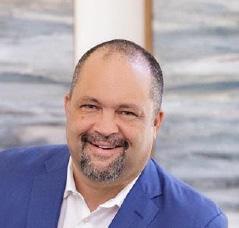
4 minute read
Addressing the Real Need in Real Time
from May 10, 2023
by caribnews
By Ben Jealous
As someone who’s been organizing since I was a teenager, I can tell you that it’s hard to get people to focus on two things at once. Pick a real need and work on it in real time – that’s the way to win people over.
We saw this play out when President Biden announced he would seek re-election.
Considering the record, Biden’s presidency has been a consequential one. Employment is as high as before COVID. While inflation is higher than in recent memory, it’s basically a third of what it was last June. He’s made mistakes around supporting fossil fuels drilling, but President Biden has attacked the three things driving the climate crisis – vehicles, methane and power plants. And he has time to finish the job as he said in the last State of the Union Address by curbing further fossil fuel expansion.
So why was a common response to his announcement handwringing about an “enthusiasm gap” among key voting groups – Blacks, Hispanics, and young people? The White House can’t seem to cut through the clutter to convince people it has solved a real need in real time, even when it has.
The real need for many continues to be economic stability. I’ve talked to people in every region of the country in the last five months. Many continue to feel the only economic mobility slopes downward. It’s something that President Biden and Congress actually have done something about. They’ve made unprecedented commitments to spend hundreds of billions to take a giant step toward keeping the Earth cool enough to stay livable. It’s our generation’s equivalent of the Apollo moon missions. The changes will happen over a decade, their benefits may take even longer to see.
But there will be immediate impacts, and that’s what is giving people the solution they need. Incentives for school systems to buy electric school buses and families to buy electric SUVs? Jobs. Home energy efficiency programs? Jobs. Tax credits for private sector investment in clean energy? Jobs.
The one thing we need to bring attention to and to protect are the jobs that come from reshaping the economy from destruction to renewal. They are good-paying jobs that in many cases don’t require a college education, the kind of jobs that have made the American middle class flourish. They employ mechanics, construction workers, electricians, technicians, and people to support their work. And whether it’s the most dollars invested, or most jobs created, the states benefitting are among the reddest politically. t makes sense that flipping the economy in this way would be a growth engine. The biggest subsidy our country ever gave private industry was allowing it to designate certain places and certain people disposable. Poverty is what has always driven people to trade the air they breathe, the water they drink, and the land they love for a paycheck that feeds and house them and their families. Turning that past on its head will create a lasting prosperity, one that doesn’t count on fuels extracted from under another country.
Opinion research makes clear that Americans care about the environment and will vote to protect it. They care about jobs more. For those of us fighting to reverse the climate crisis and leave a healthier, safer planet to our children, from the White House to a local rally, we must show people that a cleaner economy tomorrow brings jobs they want today.
Ben Jealous is executive director of the Sierra Club, the nation’s largest and most influential grassroots environmental organization. He is a professor of practice at the University of Pennsylvania and author of “Never Forget Our People Were Always Free,” published in January.

California’s reparations task panel approved recommendations to compensate and apologize to Black communities for centuries of discrimination.
At a meeting in Oakland, the nine-member committee, which first met nearly two years ago, approved a lengthy list of reparations recommendations for state lawmakers to examine.
At the meeting, U.S. Rep. Barbara Lee (D-Calif.), called on states and the federal government to implement reparations legislation.
Lee said reparations are morally justified and could solve historical racial imbalances and inequality.
The panel’s first vote accepted a detailed assessment of Black Californian discrimination in voting, housing, education, disproportionate policing and incarceration, and others.
Other suggestions included creating a new organization to serve descendants of enslaved people and calculating what the state owes them.
“An apology and an admission of wrongdoing alone is not going to be satisfactory,” said Chris Lodgson, an organizer with the Coalition for a Just and Equitable California, a reparations advocacy group.
The task force’s draft recommendation requires parliamentarians to “censure the gravest barbarities” on behalf of the state in their apologies.
The task force noted that California’s first elected governor, Peter Hardeman Burnett, was a white supremacist who supported legislation excluding Black people from the state.
The draft report states that California, a “free” state since 1850, did not pass any laws guaranteeing freedom for all. Instead, the state Supreme Court enforced the federal Fugitive Slave Act for over a decade until freedom arrived in U.S. states.
“By participating in these horrors, California further perpetuated the harms African Americans faced, imbuing racial prejudice throughout society through segregation, public and private discrimination, and unequal state and federal funding,” the study authors wrote.
The task team adopted a public apology, admitting the state’s past wrongs and committing not to repeat them.
It would be presented to the descendants of enslaved people.
California apologized for interning Japanese Americans and mistreating Native Americans.
The panel adopted the draft report’s “cash or its equivalent” restitution for qualified residents.
Oakland’s Mills College of Northeastern University hosted over 100 citizens and activists. All lamented the country’s “broken promise” to give emancipated slaves 40 acres and a mule.
Many claimed it was time for governments to fix the harms that prevented African Americans from living without fear of being wrongly punished, maintaining property, and earning wealth.
Former Black Panther Party chairwoman Elaine Brown encouraged protests.
The task force meeting was viewed as a pivotal moment in the push for local, state, and federal agencies to apologize for African American discrimination.
“There’s no way in the world that many of these recommendations are going to get through because of the inflationary impact,” said University of San Diego School of Law professor and reparations specialist Roy L. Brooks.
Economists predict the state may owe Black residents $800 billion, or 2.5 times its yearly budget.
The newest task force draft report has a much lower figure.









